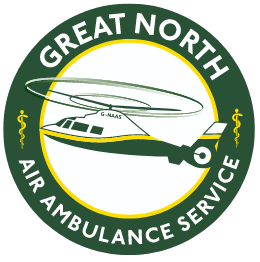""
The time of day, or day of the week, should not determine what level of emergency critical care you receive in a life-threatening situation.
We want to become a life-saving service that is operational 24 hours a day, seven days a week across the North East - but we need your help to achieve it.
We want to become a life-saving service that is operational 24 hours a day, seven days a week across the North East - but we need your help to achieve it.
We need your help
Through the Critical Care 24/7 appeal, we aim to:
![]()
![]()
![]()
![]()
![]()
![]()
Support the campaign
By donating £7 a month, you could help us to become a 24/7 service and be there for hundreds of additional patients each year.
Why do we need to become a 24/7 Service?
Emergencies that require on-scene critical care can happen at any time.
Becoming a 24/7 service would help us ensure someone’s worst day doesn’t become their last.
Why aren’t we a 24/7 service already?
Funding. Since 2015 we have delivered emergency critical care at night by road two nights a week. This was later expanded to four nights a week and meant that we were able to respond to an additional 524 call-outs last year alone. But with your help we can do hundreds more.
How much extra do we need to raise?
We estimate that to operate a 24/7 service across the North East will cost an additional £310,000 per year, on top of the £5.3 million we already need to raise. To ensure the long-term future the 24/7 service we need to raise this additional amount every year.
Are we able to cope with the additional need?
Yes. The extra funds needed will pay for the expansion of our doctor-led critical care team and the equipment required to respond to more call outs. Our new base at Urlay Nook is ready to accommodate the increase in staff and equipment associated with the service becoming 24/7.
Why aren't we providing a 24/7 service in Cumbria?
The service model has been developed in the North-East and will initially operate only within this region. Cumbria, with its lower population density and smaller urban centres, presents a completely different challenge but GNAAS is already exploring options to develop the service in the county. The charity plans to run an extensive trial in Cumbria as soon as the necessary funding is in place, in order to fully understand the need for a 24/7 service.
